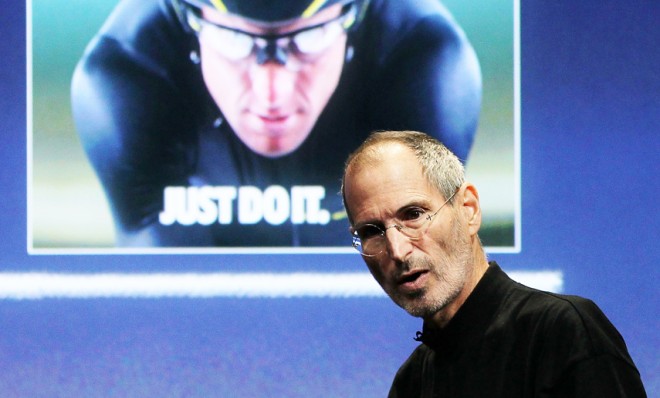Why are smart kids more likely to do drugs?
Studies show a correlation between high childhood IQs and getting high

A free daily email with the biggest news stories of the day – and the best features from TheWeek.com
You are now subscribed
Your newsletter sign-up was successful
"Taking LSD was a profound experience, one of the most important things in my life." — Steve Jobs
There is plenty of anecdotal evidence that a relationship exists between intelligence and drug use. Some of the greatest thinkers, artists, and musicians openly used illegal substances. Steve Jobs and Bill Gates both admitted to taking LSD in their youth, and Sigmund Freud and Thomas Edison were avid cocaine users.
Now there is mounting scientific evidence of a correlation between genius and getting high as well.
The Week
Escape your echo chamber. Get the facts behind the news, plus analysis from multiple perspectives.

Sign up for The Week's Free Newsletters
From our morning news briefing to a weekly Good News Newsletter, get the best of The Week delivered directly to your inbox.
From our morning news briefing to a weekly Good News Newsletter, get the best of The Week delivered directly to your inbox.
Using data from the 1958 National Child Development Study, researchers published a report last year (PDF) that found children with higher IQs were more likely to use illegal drugs later in life. The study surveyed 17,416 people, expanding on 2011 findings that also indicated that smarter children were significantly more likely than those with lower IQs to use drugs as teens or young adults.
So why do smart kids end up using drugs? James White, the 2011 study's lead author, believes it has to do with educated decision-making. Research shows that children with higher IQs are more likely to eat well and lead active lifestyles, and less likely to smoke cigarettes — all based on an educated perspective on health. Since people of higher intelligence tend to base their decisions on evidence, White suggests they are inclined to experiment from time to time with drugs because there is limited data on the damaging effects of occasional drug use.
With smoking, the evidence [about its dangers] is overwhelming, whereas when you look at things like cannabis use, since they are more likely to associate with people who are similar to them, they are likely to see that smoking cannabis relatively infrequently doesn't have huge impact.
The likely mechanism is openness to experience and, I think, it's also this idea of having an educated view of risk as well. [TIME]
Evolutionary psychologist Satoshi Kanazawa posits a different explanation, arguing that it's the evolutionary impulse toward novelty that leads to drug use. He bases his theory on The Savanna Principle, the psychological theory that it is difficult for the human brain to comprehend and deal with situations that didn't exist in the ancestral environment. Kanazawa argues that intelligent people thrive in new environments and are more capable of dealing with new situations, which would explain their impulse to interact with new things — in this case, controlled substances. Kanazawa argues the same principle can be used to explain why intelligent children are more likely to grow up to be heavy drinkers.
"The Hypothesis would therefore predict that more intelligent individuals may be more likely to prefer drinking modern alcoholic beverages…than less intelligent individuals, because the substance and the method of consumption are both evolutionarily novel." [Psychology Today]
A third hypothesis suggests that gifted children simply fit the profile of drug users. Highly intelligent kids tend to suffer more from social isolation and boredom, which can lead them to seek out new experiences and tools to cope with being different.
A free daily email with the biggest news stories of the day – and the best features from TheWeek.com
Monica Nickelsburg is a digital producer for TheWeek.com. She has previously worked for Transient Pictures, The Daily Beast, NBC, and Forbes. Follow her @mnickelsburg.
-
 Switzerland could vote to cap its population
Switzerland could vote to cap its populationUnder the Radar Swiss People’s Party proposes referendum on radical anti-immigration measure to limit residents to 10 million
-
 Political cartoons for February 15
Political cartoons for February 15Cartoons Sunday's political cartoons include political ventriloquism, Europe in the middle, and more
-
 The broken water companies failing England and Wales
The broken water companies failing England and WalesExplainer With rising bills, deteriorating river health and a lack of investment, regulators face an uphill battle to stabilise the industry